Pandemic peacebuilding: how to leverage digitalisation for societal resilience in Africa
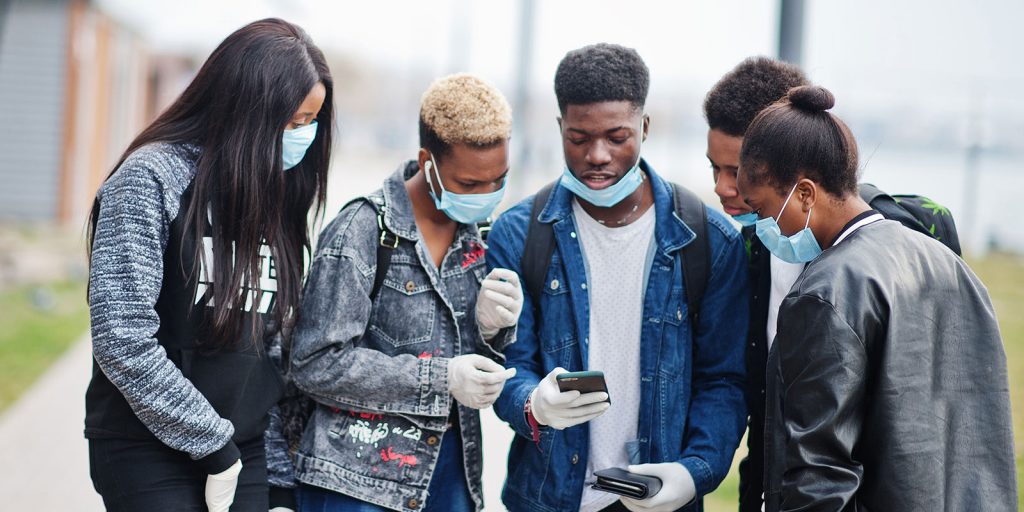
As a response to the ongoing health crisis, innovative digital solutions are necessary to help us adapt to the ‘new normal’ − and peacebuilding is no exception. While the African continent is often portrayed as the least ‘connected’ part of the world, its responses to COVID-19 demonstrate the potential for home-grown digital innovation that can strengthen societal resilience. But how can this potential be harnessed by peacebuilders to make sure that their efforts support digital self-organisation, rather than hinder it?
Youth agency and peacebuilding in the Central African Republic (CAR)
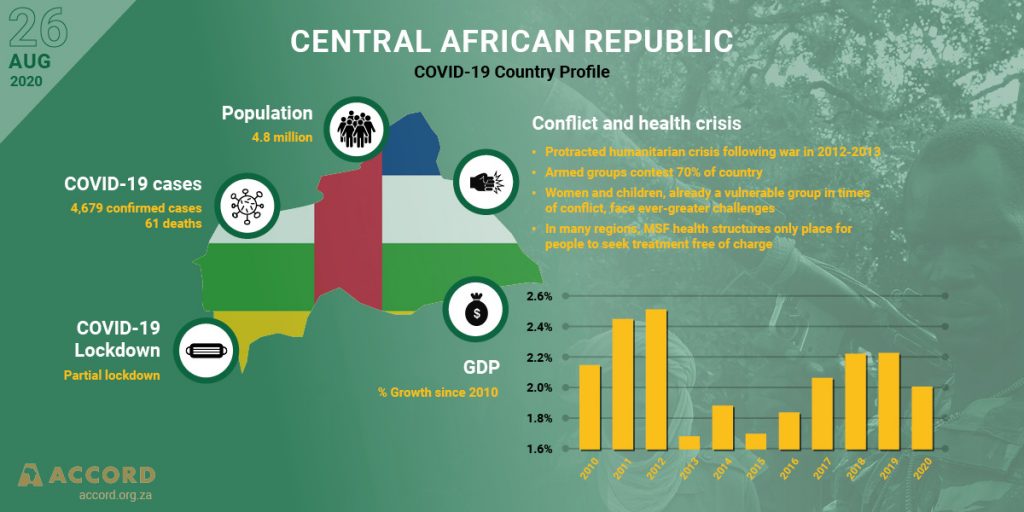
Some 60% of the Central African Republic’s (CAR) population is estimated to be under the age of 24. Despite their significant numbers, the youth remain largely under-represented and excluded as partners in decision-making processes, and their contributions to peace are often overlooked. Capitalising on the momentum following the signing of the peace agreement, with funding from the United Nations Peace Building Fund (PBF), ACCORD launched a project titled ‘Towards Youth Inclusive and Gendered Peace Processes in the Central African Republic’.
COVID-19-related conflict drivers and resilience mechanisms in Liberia
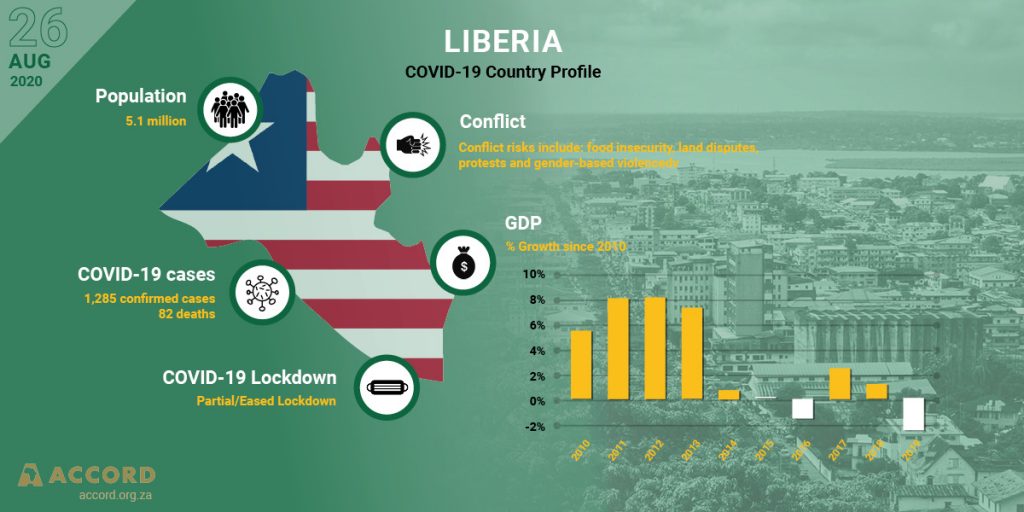
The Liberian Peacebuilding Office (PBO) undertook a COVID-19 Community Resilience and Conflict Sensitivity Monitoring assessment in July. The assessment revealed that the COVID-19 pandemic has increased the drivers of conflict and other early warning conflict factors across the country. In addition, the COVID-19 community conflict-mapping assessment has confirmed and further uncovered emerging conflict drivers – which, if not addressed in the short term, will undermine the fragile peace and the government’s response to COVID-19 emergency health efforts.
Implications of COVID-19 for the 2020 review of UN peacebuilding
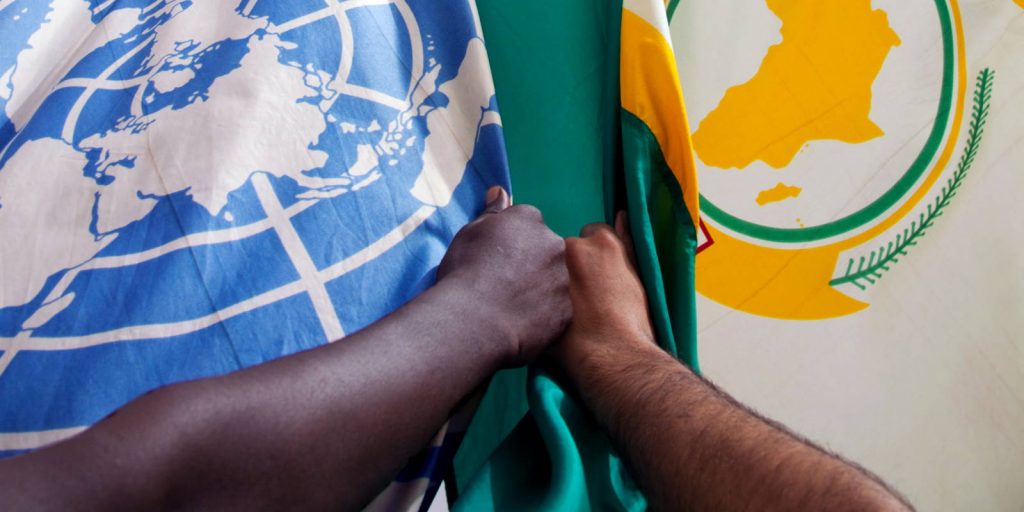
The 2020 United Nations (UN) peacebuilding review was tasked to take stock of the progress made over the first 15 years of the UN’s Peacebuilding Architecture (PBA). Over the last few months, almost all peacebuilding initiatives and programmes have been affected by the measures introduced to prevent the spread of the COVID-19 pandemic. The downstream effects of the pandemic are likely to continue to have an impact on peacebuilding, and especially its financing, for at least the next 12 to 24 months.
The DRC maintains commitment to regional integration in Central Africa despite COVID-19
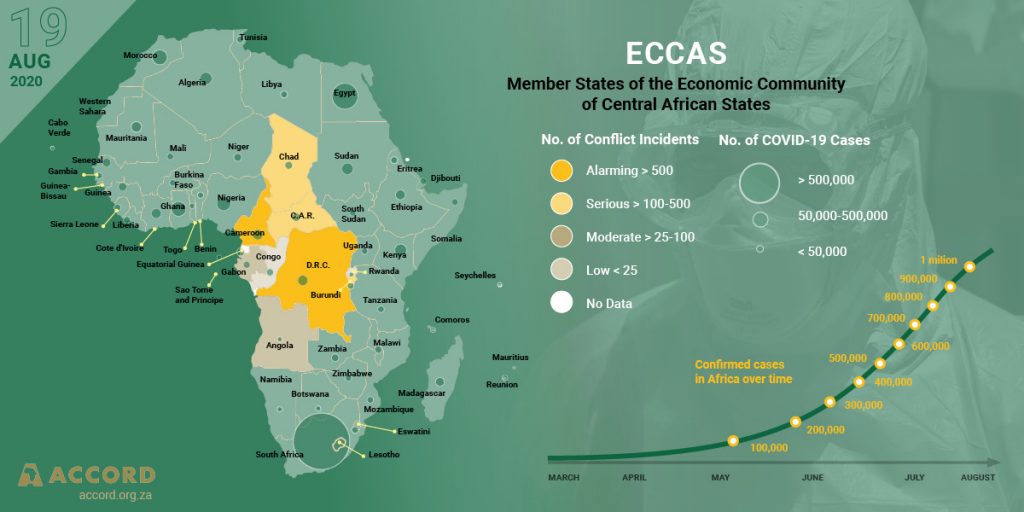
The Democratic Republic of the Congo (DRC), under the leadership of President Félix Tshisekedi, has demonstrated its commitment to regional integration in Central Africa. This commitment has been maintained despite COVID-19, which has not stalled the ongoing Economic Community of Central African States’ (ECCAS) institutional reform process as some may have feared. Instead, not only are the countries of the subregion moving forward with the reform agenda, but they have also adopted a regional response to the pandemic, which addresses its cross-border aspects.
Sustaining MONUSCO’s support to peace and stability in the COVID-19 context
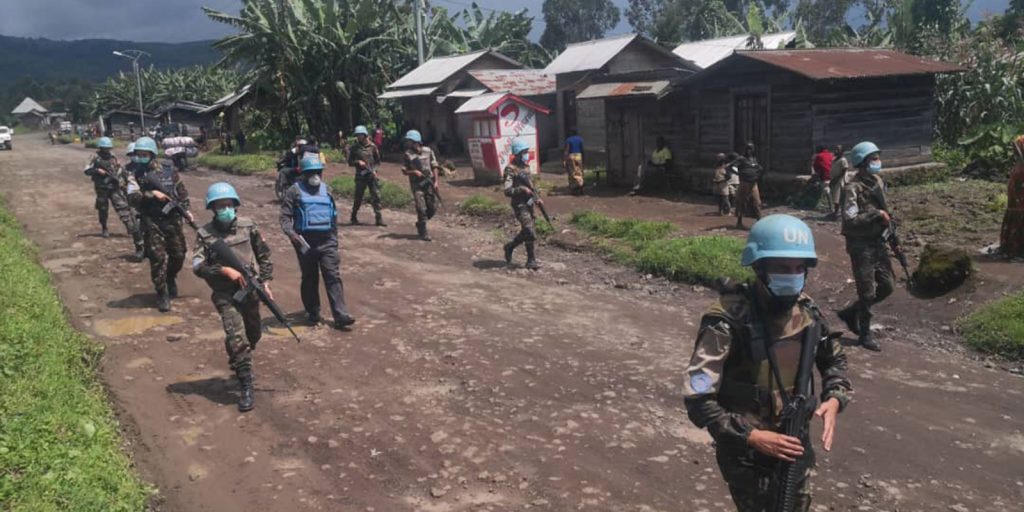
While the United Nations Stabilization Mission in the Democratic Republic of the Congo (MONUSCO) learnt valuable lessons from the recent Ebola outbreak in the east of the country, the global nature of COVID-19 – which was accompanied by severe movement restrictions, healthcare risks and profound socio-economic shifts – challenged the way we were doing business and required a fundamental shift in our approach.
Implications of the end of the national state of emergency in the DRC
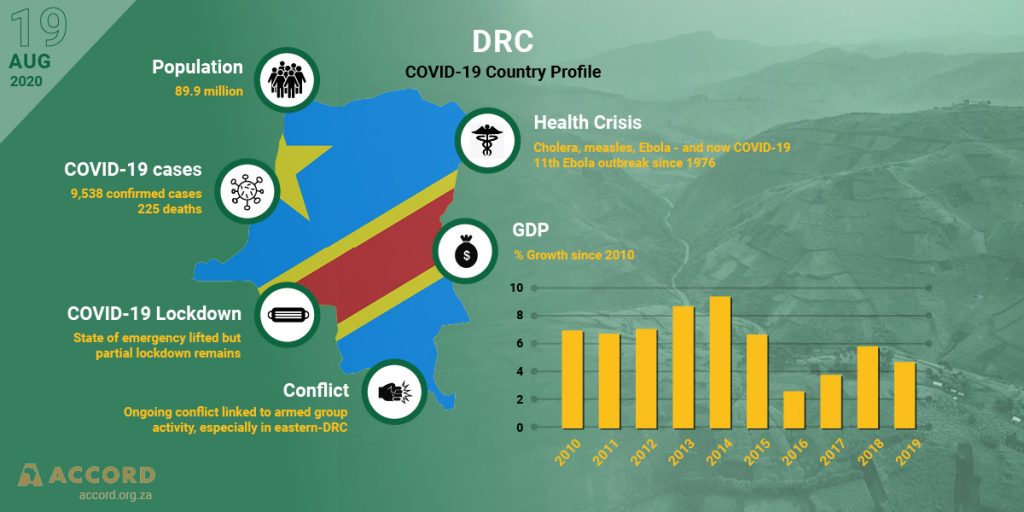
There are lessons to be learnt from the Democratic Republic of the Congo’s (DRC) approach and decision to declare an end to its national state of emergency, in spite of increasing numbers of infections and growing strained relations between the government and some of its citizens.
Mitigating the impacts of COVID-19 in the DRC and the Great Lakes region
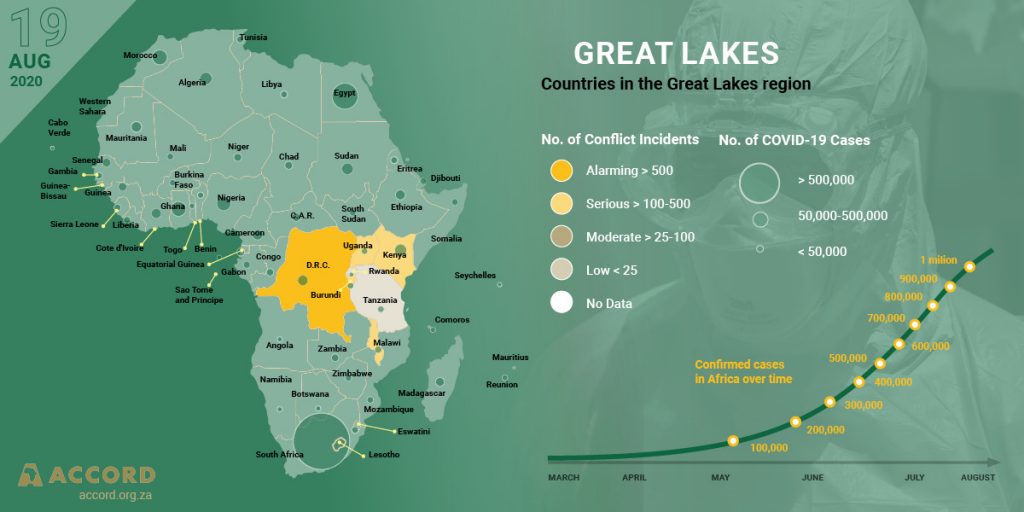
When Africa surpassed 1 million COVID-19 infections on 7 August 2020, the Great Lakes region1 ranked as the continent’s worst-hit area. Accounting for roughly one third of Africa’s total population, the region reported over 60% of Africa’s confirmed infections (600 000 cases) and more than 50% of its fatalities (11 500 cases). South Africa faced by far the heaviest caseload, followed by Kenya, Sudan and the DRC.
COVID-19 – the triple attack on Africa
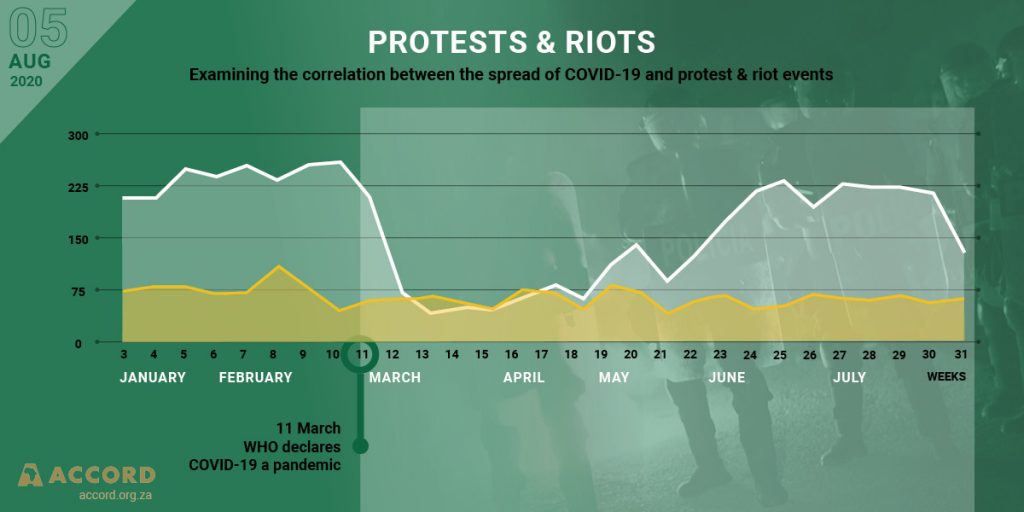
About one million people on the African continent are now infected by COVID-19. And while we are still pondering how to rescue lives and assess the damage of the health crisis, two more ‘pandemics’ are still to come: the socio-economic spillover of the health pandemic, and its political consequences. With that comes the massive risk to the Sustainable Development Goal (SDG) of creating peace, justice and inclusion (SDG16).
Times of unprecedented crisis present unique opportunities for unprecedented action
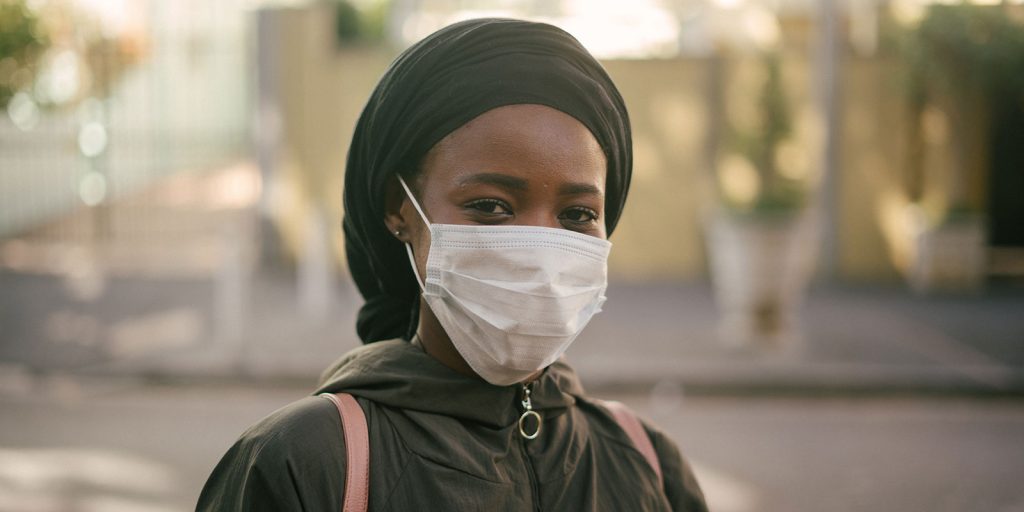
The COVID-19 pandemic has revealed massive inequalities within our societies and has brought to light the unique burdens that women globally carry. As we respond to the impacts of COVID-19, both in the immediate and long term, we have an unprecedented opportunity to completely redesign our ways of living through innovative and large-scale action that can cater for the magnitude of transforming the African continent. The allocation of response resources should be dually focused on the immediate needs of managing the virus and, simultaneously, on the future, to dismantle the structural and systemic barriers that reinforce inequality and disenfranchisement. We have been presented with the opportunity to reimagine and redesign our society into one that is vibrant and equitable. We must place women at the core of the response and beyond.
